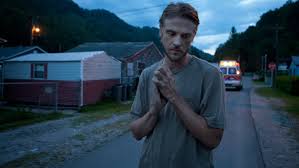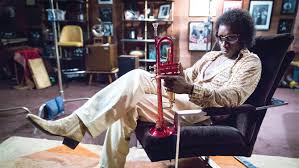3 Women: Movie Reviews of Personal Shopper, Ghost in the Shell and Beauty and the Beast by Howard Casner
Posted: April 7, 2017 | Author: Donald | Filed under: Uncategorized | Tags: Audra McDonald, Beauty and the Beast, Bill Condon, Dan Stevens, Emma Stone, Emma Thompson, Evan Spiliotopoulos, Ewan McGregor, Ghost in the Shell, Ian McKellan, Josh Gad, Juliet Binoche, Kevin Kline, Kristen Stewart, Lars Eidinger, Luke Evans, Michael Pitt, Olivier Assayas, Rupert Evans, Scarlett Johansson, Stephen Chbosky | 2 Comments » For questions: hcasner@aol.com
For questions: hcasner@aol.com
First, a word from our sponsors: I wanted to say thank you to everyone who contributed to our Indiegogo campaign for 15 Conversations in 10 Minutes. We did very well due to you folks. For those who weren’t able to give, keep us in your thoughts. And if you are able to contribute in the future, contact me and I’ll tell you how. I will even honor the perks on the original campaign.
I am now offering a new consultation service: so much emphasis has been given lately to the importance of the opening of your screenplay, I now offer coverage for the first twenty pages at the cost of $20.00. For those who don’t want to have full coverage on their screenplay at this time, but want to know how well their script is working with the opening pages, this is perfect for you. I’ll help you not lose the reader on page one.
Ever wonder what a reader for a contest or agency thinks when he reads your screenplay? FosCheck out my new e-book published on Amazon: Rantings and Ravings of a Screenplay Reader, including my series of essays, What I Learned Reading for Contests This Year, and my film reviews of 2013. Only $2.99. http://ow.ly/xN31r
and check out my Script Consultation Services: http://ow.ly/HPxKE
Warning: SPOILERS
 Kristen Stewart, as far as I was concerned, did not have a particularly auspicious start in films as an actress. She came to fame by making big movies. But I found the Twilight series, and her acting, impossible to watch (I couldn’t get through the first in the franchise). She followed that up with Snow White and the Huntsman, which I did manage to get through, but definitely no thanks to Stewart’s underwhelming performance.
Kristen Stewart, as far as I was concerned, did not have a particularly auspicious start in films as an actress. She came to fame by making big movies. But I found the Twilight series, and her acting, impossible to watch (I couldn’t get through the first in the franchise). She followed that up with Snow White and the Huntsman, which I did manage to get through, but definitely no thanks to Stewart’s underwhelming performance.
Then something happened. She became good. I was astounded, but still it happened.
This came to pass around the time she made Still Alice and The Clouds of Sils Maria (for which she became the first American to win a César award for acting-here in the supporting actress category). Read the rest of this entry »
CHARACTER CHIAROSCURO: Movie Reviews of Little Accidents, Appropriate Behavior and Son of a Gun by Howard Casner
Posted: January 28, 2015 | Author: Donald | Filed under: Uncategorized | Tags: Alicia Vikander, Appropriate Behavior, Boyd Holbrook, Brenton Thwaites, Cecilia Frugiuele, Chloȅ Sevigny, Desiree Akhavan, Elisabeth Banks, Ewan McGregor, Halley Feiffer, Jacob Lofland, John Collee, Josh Lucas, Julius Avery, Little Accidents, Matt Noble, Nash Edgerton, Sara Colangelo, Scott Adsit, Son of a Gun | 216 Comments »First, a word from our sponsors. Ever wonder what a reader for a contest or agency thinks when he reads your screenplay? Check out my new e-book published on Amazon: Rantings and Ravings of a Screenplay Reader, including my series of essays, What I Learned Reading for Contests This Year, and my film reviews of 2013. Only $2.99. http://ow.ly/xN31r
and check out my Script Consultation Services: http://ow.ly/HPxKE
Warning: SPOILERS
Three movies have opened recently that are driven by characters studies, even in the case of the one that is also driven by a prison break and robbery of a gold refinery. It’s not a bad way to start the new year, even if one of them, as far as I’m concerned, doesn’t work on any level.
 Little Accidents takes place in a small town that depends on coal mining for its existence. When a cave in leaves a sole survivor, he gets caught between two factions: the miners who want him to blame the company so they can be sued for compensation, and the miners who want him to say it was an accident because if the mine owners are held at fault, the mine will close and there’ll be no more work.
Little Accidents takes place in a small town that depends on coal mining for its existence. When a cave in leaves a sole survivor, he gets caught between two factions: the miners who want him to blame the company so they can be sued for compensation, and the miners who want him to say it was an accident because if the mine owners are held at fault, the mine will close and there’ll be no more work.
Meanwhile, the teenage son of the mine manager continually bullies the son of a miner who has died. When a fight ensues, the miner’s son accidentally kills the manager’s son and hides the body, causing a city wide search.
Finally, the wife of the manager, upset over the disappearance of her son and her suspicion that her husband was responsible in some way for the cave in, finds her life slipping away from her.
The three characters, Amos, the survivor; Owen, the miner’s son; and Diane, the manager’s wife, slowly find their lives intersecting as they become involved in some way with each other: Amos and Diane have an affair while Owen does yard work for Diane while Diane begins to treat him as a surrogate son and Amos becomes a kind of father figure to Owen.
Little Accidents is written and directed by Sara Colangelo and is one of those small movies that are rich in depth of characterization. The people are leading lives of quiet desperation, but Colangelo shows them such understanding and sympathy that you can’t help but be deeply moved in how they work through the difficulties that have suddenly shown up in their lives. Read the rest of this entry »
Movie Review of STOKER and JACK THE GIANT KILLER by Howard Casner
Posted: March 5, 2013 | Author: Donald | Filed under: Uncategorized | Tags: Bryan Singer, Chan-wook Park, Eddie Marsan, Erin Cressida Wilson, Ewan McGregor, Ian McShane, Jack the Giant Slayer, Jacki Weaver, Mathew Goode, Mia Wasikowski, Nicholas Hoult, Nicole Kidman, Stanley Tucci, Stoker, Wentworth Miller | 7 Comments »When Michael Haneke, the acclaimed filmmaker of Amour and The White Ribbon, came to the U.S., he met with a producer who gave him a script to consider. It was an action film of some sort, a WWII something or other, a story totally inappropriate to Haneke for anyone who knew anything about his films. To paraphrase his reaction, he asked, Is this what Hollywood is? A place where they just grab any old thing they have lying around in a drawer to give you that hasn’t been produced yet?
This is what I thought while watching the movie Stoker. It’s directed by Chan-wook Park, the popular South Korean director of Oldboy and Thirst, and though I can’t say that’s how he got hired to direct this film, it certainly feels like some producer just had it lying around in his drawer and foisted it upon him.
The film was written by Wentworth Miller (his first foray into screenwriting, but I guess he had to do something to pass the time while behind bars) with Erin Cressida Wilson (Fur, Secretary) given credit as a contributing writer. In many ways, it’s basically one of those women in danger films that almost every actress made at one time or another in the 1940’s and ‘50’s, from Barbara Stanwyck to Joan Crawford to Katherine Hepburn (yes, even Hepburn made one). As in those films, a psychopath or sociopath or psychotic sociopath or sociopathic psychotic worms their way into a household; anything from camp to high tension occurs (and usually both). In this entry in the once popular subgenre, when the patriarch of a wealthy family dies, his brother suddenly shows up at his funeral and takes a rather creepy interest in his niece (the man is called Uncle Charlie for those who like film references and have seen Alfred Hitchcock’s Shadow of a Doubt). Various bad things happen as a result.
It’s not that there’s anything wrong with the screenplay. It certainly gets the job done. At the same time, for someone of Park’s oeuvre, it’s rather routine. No, I have to be honest here. It’s very routine. No, that doesn’t quite do it. It’s ridiculously and insultingly routine. Is this really the best the U.S. can offer a filmmaker of Park’s stature?
To Park’s credit, he directs the hell out of the movie. He fills it with odd angles and creepy sounds (there’s suppose to be some through line about the niece, India, being able to hear things other people can’t, though there never seemed to be a pay off for it). There’re all sorts of overlaps and dissolves and plenty of visual metaphors (like a spider crawling up India’s leg and going between her thighs—subtle much?). Park gives it the old Orson Welles try (who also had to constantly flaunt his directing in order to cover up lackluster material as in Touch of Evil and The Lady from Shanghai). And it must be said, Stoker is often an effective and even beautiful movie.
But it’s also one of these stories where people go missing and no one seems that concerned about what happened to them, unless it’s convenient for the plot. Everyone who knows Charlie’s secret seems extremely worried about India, but not her mother, Evelyn, who in many ways is chopped liver by the time the movie is over. The two both share the same house with Charlie, but it’s only India who anyone is concerned about (I thought sure the big revelation was going to be that Charlie was actually India’s real father, but no, this interest of Charlie’s for India was left a bit vague for me). And the ending doesn’t really resolve anything or provide a satisfying emotional resolution. In fact, by the time it was over, I was wondering whether a bit too much of it ended up on the cutting room floor.
The movie is nicely cast for the most part. The actors do the best they can with the material. Mia Wasikowski is India and she’s fine (she’s very good at sexual yearning and having an orgasm while playing the piano with her Uncle). Nicole Kidman handles the material well in her roll as an escapee from a Tennessee William’s play. The strongest acting comes from that remarkable down under discovery Jacki Weaver, and her performance here may make her one of the finest character actresses in films since Thelma Ritter. Mathew (A Single Man, Matchpoint, Watchmen) Goode is Uncle Charlie; he’s lovely to look at, but his performance is a bit flat, like his American accent.
I know I’ve been really hard on this film. But I think it’s because Park deserves better. The U.S. film industry has chewed up and spewed out many an artist over the years and I would hate to have the same thing happen to Park. But Stoker is not a promising beginning for an American career.
I saw Jack the Giant Slayer. Yes, I did. It was at this nice theater I love to go to and there really wasn’t much else showing and a friend wanted to go for lack of a better movie out there to see, so we went. It’s not a disaster. If only it were; it would have been a lot more fun. It’s actually, in certain ways, better written and acted and at times cleverer than Stoker. It’s directed by Bryan Singer (are we ever going to have another movie like The Usual Suspects again), has four authors (yes, four), and stars Nicholas Hoult, Ewan McGregor, Eddie Marsan and Ian McShane, with Stanley Tucci as the gay character who can’t be identified as gay because that would be offensive. But one spends most of the time wondering why any of them actually wanted to do the film. It’s one of those movies in which a woman claims to be raised by her mother to be a feminist, but the chief lesson she was taught is to marry for love. It’s one of those movies meant for a family audience, but it has so many people being slaughtered, that it’s just kind of depressing. It’s one of those movies where the good guys’ army is being massacred, but they never seem to run out of soldiers. In the end, it’s just one of those movies, one of the worst things a movie can be.










 Miles Ahead is the new biopic of Miles Davis, one of the great, if not the greatest, jazz trumpeter and composer of all times. It’s written by Steven Baigelman and the director and star Don Cheadle. The filmmakers do everything they can, from non-linear storytelling to all sorts of directorial flourishes, to keep the audience enthralled.
Miles Ahead is the new biopic of Miles Davis, one of the great, if not the greatest, jazz trumpeter and composer of all times. It’s written by Steven Baigelman and the director and star Don Cheadle. The filmmakers do everything they can, from non-linear storytelling to all sorts of directorial flourishes, to keep the audience enthralled.
